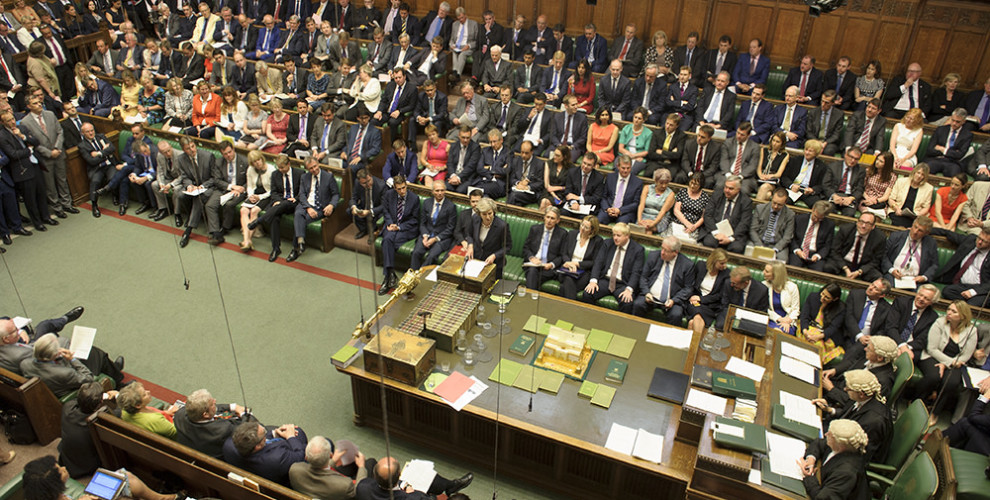British Parliament to stage debate on Turkey
After the visit by President Erdogan to the UK, Parliament will listen about the political situation in Turkey.
After the visit by President Erdogan to the UK, Parliament will listen about the political situation in Turkey.

A debate on ‘Early elections, human rights and the political situation in Turkey’ has been scheduled for Thursday 7 June in the Main Chamber of the British Parliament.
The debate was nominated by the Backbench Business Committee after a representation from Joan Ryan MP (Labour), Tommy Sheppard MP and Jim Shannon MP.
Presidential and Parliamentary elections will take place in Turkey on 24 June.
The next Presidential race was originally scheduled to be held in November 2019, but in a surprise move President Recep Tayyip Erdoğan called early elections for both institutions.
These elections will be the first to be held under Turkey’s new constitutional arrangements, which were narrowly approved in a referendum in April 2017.
In the report submitted to Committee, it is explained how “the changes will turn Turkey’s current Parliamentary system into a Presidential one. The President will head the executive branch of government, and will have powers to issue decrees with the force of law, prepare budgets, dissolve parliament, and appoint ministers and some top judges”.
The report also reminded that “the election will take place under a state of emergency that has been imposed since July 2016, when a military coup was launched against President Erdoğan. The Government blamed the coup on followers of the exiled Turkish Islamic cleric Fethullah Gülen. The state of emergency suspends some of the normal functions of the constitution and derogates from many provisions of the European Convention on Human Rights”.
A recent report from the UN’s High Commissioner for Human Rights, warns that the state of emergency has facilitated the deterioration of the human rights situation and the erosion of the rule of law in Turkey.
Among the key findings the report include:
- nearly 160,000 people have been arrested during the 18-month state of emergency; and 152,000 civil servants dismissed, many totally arbitrarily;
- twenty-two emergency decrees were promulgated by the end of 2017, with many regulating matters unrelated to the state of emergency and used to limit various legitimate activities by civil society actors;
- the use of torture and ill-treatment in custody, including severe beatings, threats of sexual assault and actual sexual assault, electric shocks and waterboarding by police, gendarmerie, military police and security forces;
- 300 journalists have been arrested on the grounds that their publications contained “apologist sentiments regarding terrorism” or other “verbal act offences” or for “membership” in terrorist organisations;
- over 100,000 websites were reportedly blocked in 2017, including a high number of pro-Kurdish websites and satellite TV channels.